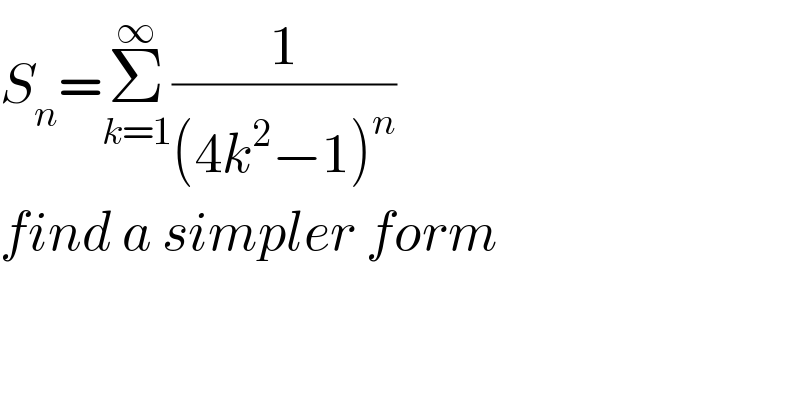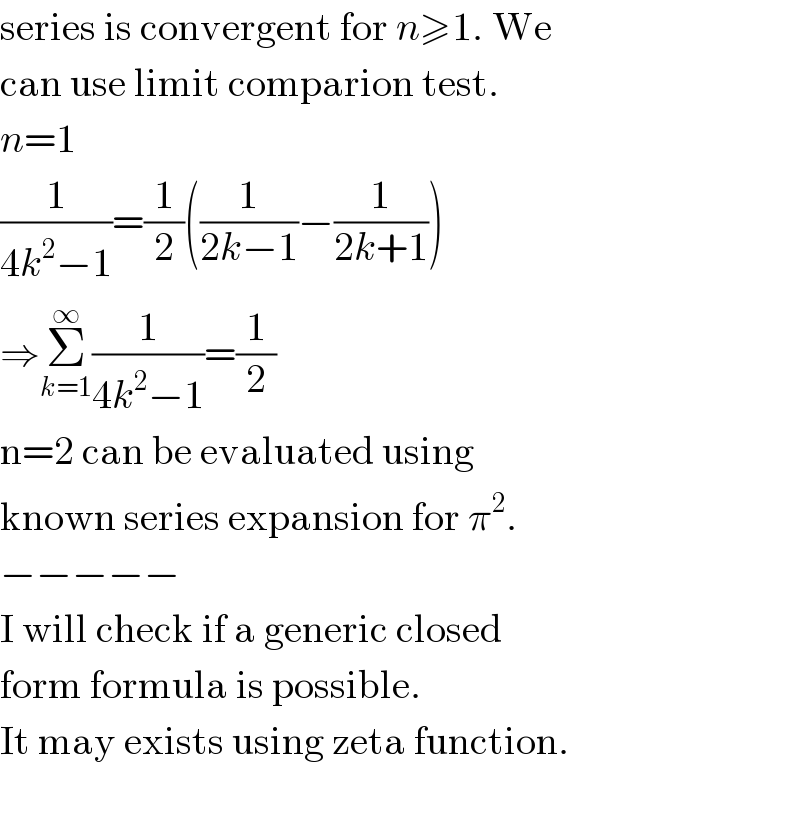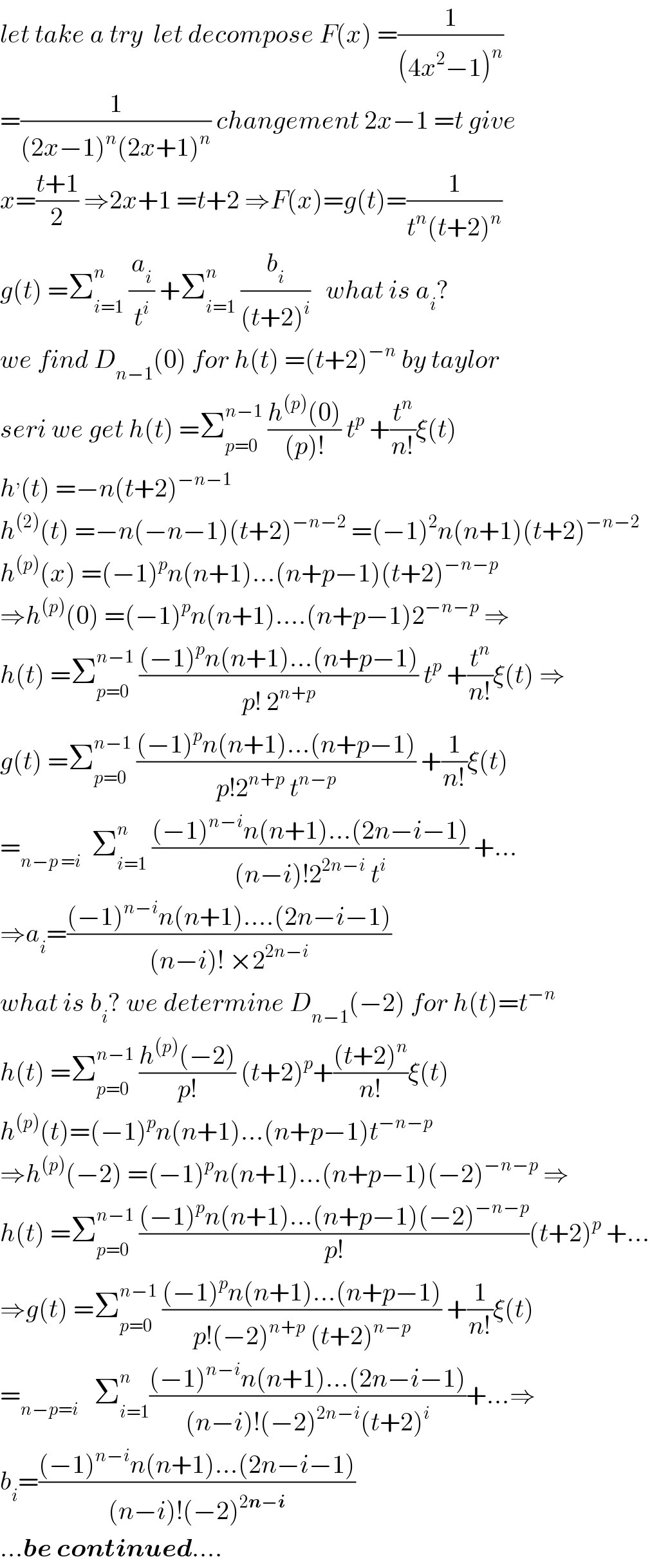
Question and Answers Forum
Question Number 92925 by frc2crc last updated on 09/May/20

Commented by mr W last updated on 09/May/20

Commented by frc2crc last updated on 09/May/20

Commented by prakash jain last updated on 09/May/20

Commented by abdomathmax last updated on 10/May/20

